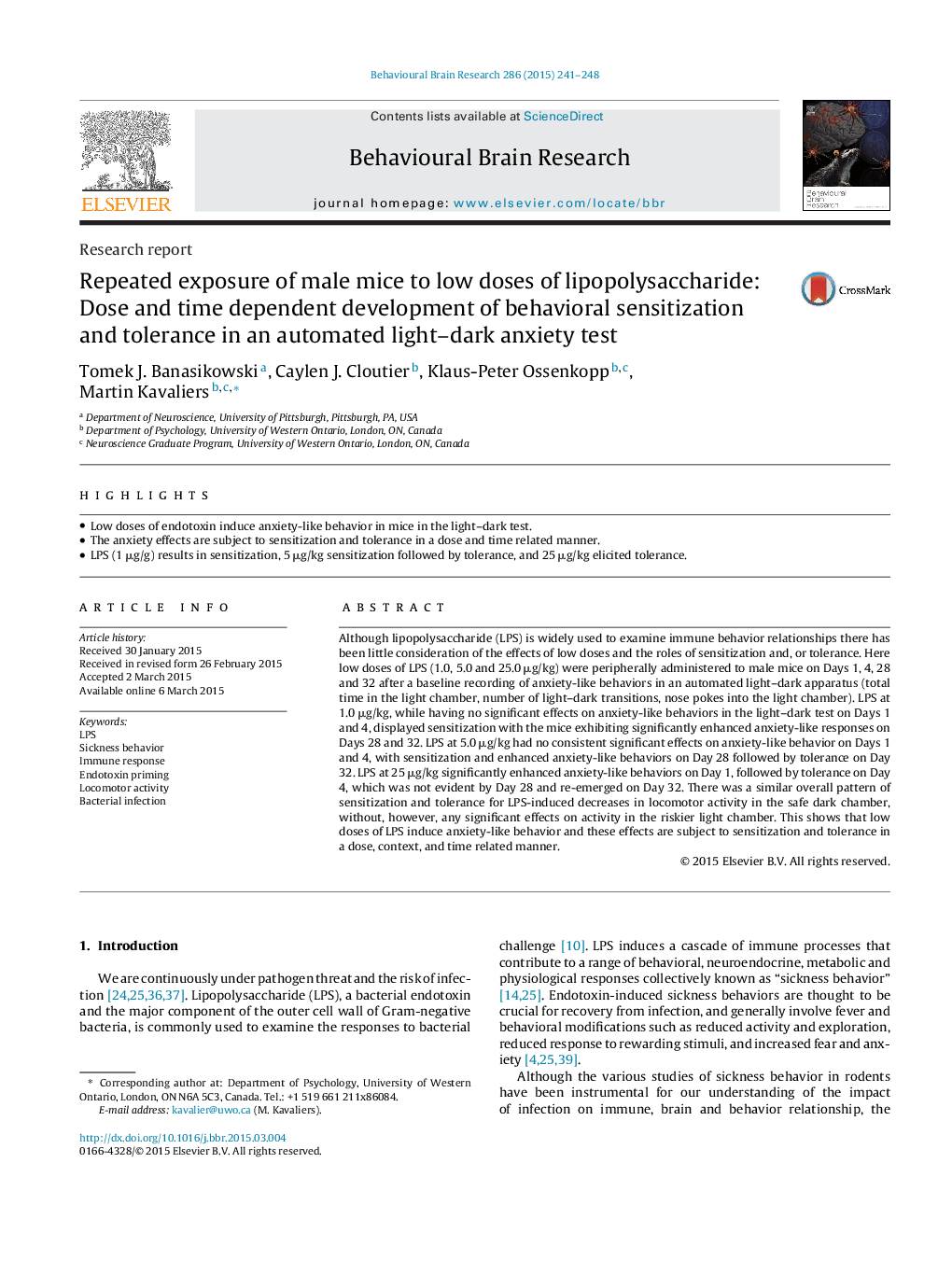| Article ID | Journal | Published Year | Pages | File Type |
|---|---|---|---|---|
| 6257138 | Behavioural Brain Research | 2015 | 8 Pages |
â¢Low doses of endotoxin induce anxiety-like behavior in mice in the light-dark test.â¢The anxiety effects are subject to sensitization and tolerance in a dose and time related manner.â¢LPS (1 μg/g) results in sensitization, 5 μg/kg sensitization followed by tolerance, and 25 μg/kg elicited tolerance.
Although lipopolysaccharide (LPS) is widely used to examine immune behavior relationships there has been little consideration of the effects of low doses and the roles of sensitization and, or tolerance. Here low doses of LPS (1.0, 5.0 and 25.0 μg/kg) were peripherally administered to male mice on Days 1, 4, 28 and 32 after a baseline recording of anxiety-like behaviors in an automated light-dark apparatus (total time in the light chamber, number of light-dark transitions, nose pokes into the light chamber). LPS at 1.0 μg/kg, while having no significant effects on anxiety-like behaviors in the light-dark test on Days 1 and 4, displayed sensitization with the mice exhibiting significantly enhanced anxiety-like responses on Days 28 and 32. LPS at 5.0 μg/kg had no consistent significant effects on anxiety-like behavior on Days 1 and 4, with sensitization and enhanced anxiety-like behaviors on Day 28 followed by tolerance on Day 32. LPS at 25 μg/kg significantly enhanced anxiety-like behaviors on Day 1, followed by tolerance on Day 4, which was not evident by Day 28 and re-emerged on Day 32. There was a similar overall pattern of sensitization and tolerance for LPS-induced decreases in locomotor activity in the safe dark chamber, without, however, any significant effects on activity in the riskier light chamber. This shows that low doses of LPS induce anxiety-like behavior and these effects are subject to sensitization and tolerance in a dose, context, and time related manner.
